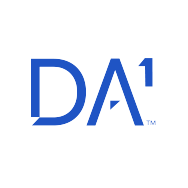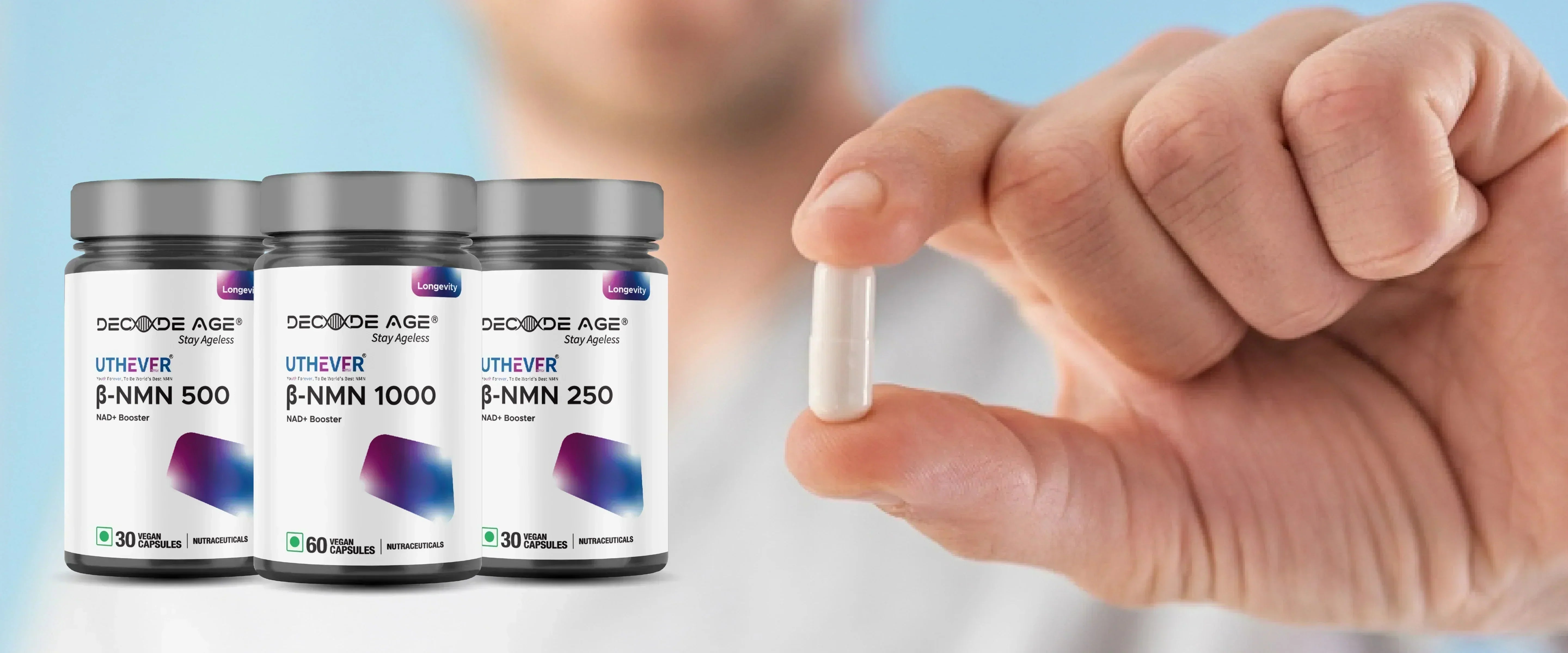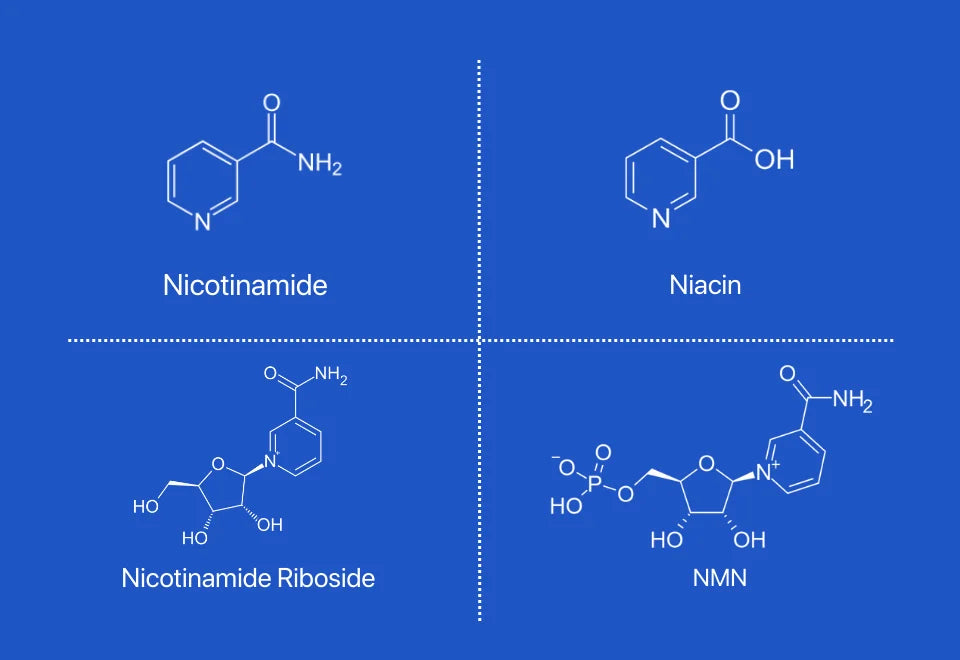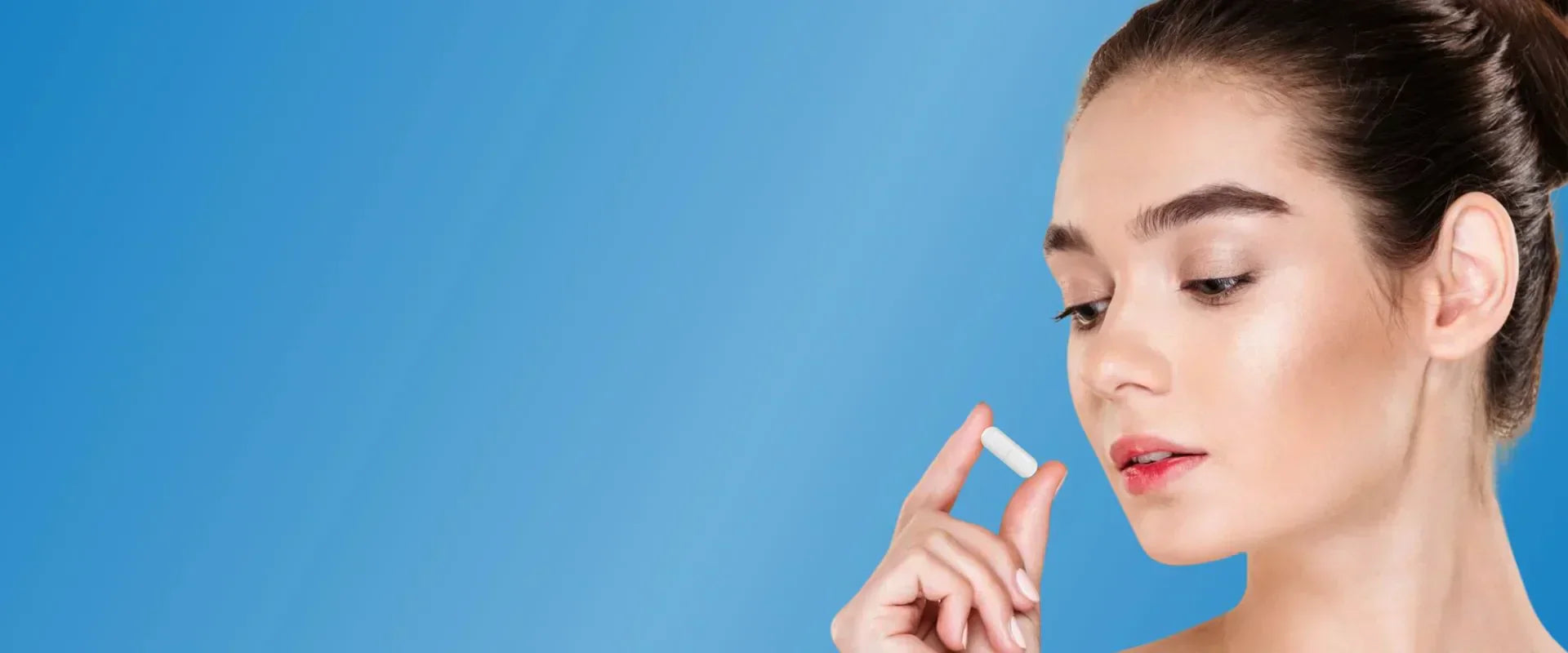NAD+ is a coenzyme that is necessary for metabolism, DNA repair, and immune system function. It is a precursor to both NMN and NR supplements. As we age, our levels of NAD+ decrease, which can lead to heart disease, neurological conditions, metabolic diseases, and even cancer. Studies in animals and humans have shown that NAD+ boosters can slow or even reverse these diseases (Covarrubias et al., 2020)
As the population ages, there is an increasing demand for healthy anti-ageing supplements. More and more people are resorting to NAD+ boosters to reduce the symptoms of ageing. More people are turning to NAD+ boosters to slow down the effects of ageing. NMN and NR supplements are the two important NAD+ boosters with multiple benefits available in today’s market. This blog post discusses the benefits of NR vs NMN as leading NAD+ boosters and explores which is better for your health.
Nicotinamide Riboside (NR)
NR, a form of vitamin B3, is found in fruits, vegetables, meat, and milk. When taken as a supplement it is known to boost NAD+ levels in humans. Growing evidence shows that Nicotinamide Riboside supplements are effective in treating health ailments, therefore, there is an urgent need to make NR supplements widely available as nutritional supplements and know their treatment benefits. NR is also shown to have a good bioavailability. Bioavailability means how much of a substance or drug is fully absorbed and reaches the intended part of the body. Today NR supplements stand out as a leading choice among other NAD+ supplements because it is safe, easily absorbed, and more effective than NAD+ boosters.
Nicotinamide Riboside benefits

Promote Healthy Ageing
Changes in NAD+ levels are associated with various age-related and lifestyle diseases. According to research, raising NAD+ levels using NR supplements can help with healthy ageing (Cercillieux et al.,2022).
Improves Cognitive Health
Studies on mice models showed that oral NR supplements can reduce the signs of Alzheimer's disease and improve learning and memory (Braidy et al.,2020).
Improves Heart Health
In healthy middle-aged and elderly persons, NR supplements were observed to lower blood pressure and aortic stiffness (Martens et al., 2018). Problems with the body's internal clock, or circadian rhythm, have been linked to cardiovascular disease. In research of mice with heart problems and poor NAD+ metabolism due to a defective circadian clock, therapy with NR supplements improved heart function and survival rates (Pieterjan et al., 2022).
Improves Muscle Health
NR supplementation has several benefits including improved muscle health and increased physical performance. A study showed that taking 1000 mg of NR supplements daily for six weeks in healthy overweight or obese adults boosted, had an NAD+ booster effect on the skeletal muscle. It also caused slight changes in body composition and metabolic rate during sleep (Remie et al., 2020).
Nicotinamide Mononucleotide (NMN)
NMN, another form of vitamin B3, is a precursor of NAD+ which is quickly absorbed and converted into NAD+ in the body. Supplementing with NMN has an NAD+ booster effect, which can reduce age-related inflammation in fat tissue, enhance insulin secretion and function, improve mitochondrial and brain function, and more. NMN is found in the nucleus, mitochondria, cytoplasm, human placenta tissue, blood, and urine. It is naturally found in foods like soybeans, cabbage, cucumber, broccoli, tomatoes, mushrooms, avocados, raw beef, and shrimp. This NAD+ supplement is drawing interest as a promising anti-ageing supplement, as NAD+ boosters reverse mitochondrial decline which is a key factor in ageing (Nadeeshani et al.,2022)
Interestingly, NMN can be directly taken by cells unlike NR which needs to convert to NMN before cellular uptake. Due to this reason, NMN is closer than NR in becoming NAD+. This shows that NMN has a better bioavailability than NR.
At first, NMN was mainly seen as a source of cellular energy and a part of NAD+ production. However, it has recently received attention for its anti-ageing properties and other health advantages. NMN restores NAD+ levels and treats age-related type 2 diabetes, obesity, stroke, heart failure, Alzheimer's, neurodegenerative illnesses, eye and kidney damage, and alcoholic liver disease.
NMN Benefits

Anti-Ageing Effect
NMN is a promising option to reduce inflammation with age, as studies show it decreases age-related fat tissue inflammation (Shade et al.,2020). Furthermore, studies indicate that NMN supplements enhance NAD+ levels and may be effective in lowering age-related disorders such as oxidative stress, inflammation, DNA damage, and dementia (Song et al., 2023).
Improves Physical Activity
NMN is found to improve walking speed, grip strength, and performance. Long-term NMN use can effectively improve NAD+ levels and help prevent age-related muscle problems in humans.
Helps in Treating Diabetes
NMN treatment benefits individuals with age-related diabetes without affecting glucose levels in non-diabetics.
Supports Weight Management
NMN safely decreased age-related weight gain, promoted energy metabolism, increased physical activity, and improved insulin sensitivity and cholesterol levels.
Improves Heart Health
NMN can protect the heart from the effects of lower blood flow and recovery by activating particular protective pathways. Thus, NMN can heal cardiac disease by regulating the body's natural repair systems.
Enhances Cognitive Health
NAD+ depletion is strongly linked to ageing and various age-related diseases, including cognitive decline. Like NR supplements, NMN treatment improved cognitive performance in older rats (Song et al., 2023).
NR vs NMN: Which NAD+ Booster is the best?
When comparing NR vs NMN, both NMN and NR supplements are the greatest NAD+ boosters available today. But many people wonder which one is better or which one works for them the best. Dr. David Sinclair of Harvard Medical School notes that when you take NMN, it is promptly transformed into NAD+ in one step, whereas NR goes through a separate process. Moreover, NMN has better bioavailability than NR.
While discussing which is the best NAD+booster, it is also important to know the side-effects of these supplements. Both NMN and NR can cause few side-effects in some people.
Some scientists believe that different parts of the body may prefer either NMN or NR. Although NMN and NR are similar in structure, NMN has an extra phosphate group, making it larger. This means NMN can't enter cells such as liver cells without first turning into NR. So, some researchers think NR supplement is the better option. However, more studies are needed to decide which one is better as a NAD+ booster for promoting anti-ageing effects. Few scientists also believe that taking both can effectively be the best NAD supplement for various cell types.
Differences/Similarities between NR and NMN
| Feature/Aspect | NR | NMN |
| Type | Vitamin B3 derivative | Vitamin B3 derivative |
| Contribution to NAD+Synthesis | Yes | Yes |
| Role in Metabolism | Participates in redox reactions | Participates in redox reactions |
| Bioavailability | Moderate | High |
| Common Uses | NAD+ booster | Direct NAD+ booster |
| Side Effects | Well-tolerated | Well-tolerated |
Conclusion
Ageing is an inescapable process that causes a steady drop in NAD levels. NAD+ supplements, on the other hand, aid in the maintenance of vital bodily activities. NMN and NR supplements are widely accessible and are the best NAD supplements for regulating ageing. NAD supplements have been shown to boost cognitive performance and skin health. NMN and NR supplements are the most effective NAD+ boosters. While both have benefits, selecting the best NAD supplement is based on specific needs, and some experts recommend mixing the two for maximum efficacy.
FAQs
Is it safe to use NMN daily?
A 2023 study found that 900 milligrams of NMN taken orally every day is generally safe. However, the highest quantity of NMN dosage required to gain the NAD supplement benefit is 600 mg.
How many NR supplements should you take daily?
A 2016 study involving healthy human volunteers and mice found that taking 1000 mg of NR supplements twice daily (totalling 2000 mg) had a steady-state NAD+ booster effect and also stimulated NAD+ metabolism. However, before beginning NR supplementation, you should consult with your doctor.
What are some natural NAD+ boosters?
Nicotinamide Riboside (NR) is a form of vitamin B3 naturally found in fruits, vegetables, meat, and milk. NMN is present in foods like soybeans, cabbage, cucumbers, broccoli, tomatoes, mushrooms, avocados, raw beef, and shrimp. Since both NR and NMN can enhance NAD+ levels, eating foods rich in these compounds can have a natural NAD+ booster effect.
How to choose the best NAD supplement?
When choosing the best NAD supplement, consider quality, dosage form, strength, and the manufacturer's reputation. It is recommended that you consult with a healthcare practitioner to identify the best solution for your needs. Bioavailability—the degree to which a chemical is absorbed and used by the body—varies across NAD+ supplements, so selecting one with high bioavailability is crucial for success.
Are there any negative effects to NAD+ supplements?
Some people may have minor adverse effects such as nausea, dizziness, or stomach discomfort after using NAD+ supplements. These effects are usually transitory and should disappear as the body adjusts to the supplement.
Does NMN supplementation help in weight loss?
Research shows that NMN can safely reduce age-related weight gain, enhance energy metabolism, boost physical activity, and improve insulin sensitivity and lipid levels, contributing to better overall health.





























Leave a comment
All comments are moderated before being published.
This site is protected by hCaptcha and the hCaptcha Privacy Policy and Terms of Service apply.